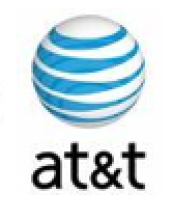
Fast, affordable Internet access for all.

Imagine going to a gas station, putting 10 gallons into your car's 12 gallon tank, and driving off only to find your needle only approaches half a tank? This scenario is quite rare because government inspects gas stations to ensure they are not lying about how much gasoline they dispense.
But when it comes to the Internet, we have found measurements of how much data one uses is unregulated, providing no check on massive companies like AT&T and Time Warner Cable. And we are seeing the results -- AT&T is not open about what its limits are or how to tell when one has exceeded them.
Stop The Cap has noted that AT&T has advertised unlimited bandwidth for its DSL/ U-verse product while chiding and charging customers who exceeded certain amounts of monthly usage. Customers were quietly warned and charged $10 for each additional 50 GB over 150 GB for DSL subscribers or 250 GB for U-verse customers. Clearly, "unlimited" has several definitions, depending on whether one is a customer or an ISP.
Complaints have also come in from SuddenLink customers and others. The ISP charged usage based customers for bandwidth usage when they didn't even have power. Simlarly, AT&T customers began to complain about inaccurate meters from the beginning of the program. This from a 2011 DSL Reports story - one of many comments from AT&T customers:
AT&T's data appears to be wholely corrupted. Some days, AT&T will under-report my data usage by as much as 91%. (They said I used 92 meg, my firewall says I used 1.1 Gigs.) Some days, AT&T will over-report my data usage by as much as 4700%. (They said I used 3.8 Gig, dd-wrt says I used 80 meg. And no, this day wasn't anywhere near the day they under-reported.)
Most of us don't keep track of our bandwidth usage, because there is no easy way to do it. For the most part, we have to take the word of our Internet service providers, but who is ensuring that they are accurate? Mismeasuring could be the result of incompetence or fraud, but the FCC has not stepped up to ensure consumers get what they are promised.
DSL Reports has extensively covered this AT&T bandwidth cap story and its refusal to open its meters to verification. One customer recorded a persistent pattern of inaccuracuracies, finding that AT&T was over recording the households daily usage by about 20-30%. The user contacted AT&T support to get a definition of "metered usage" because there was no definition on its website. From the article (and reposted from Slashdot):
Boy, did I get a surprise. After several calls, they finally told me they consider the methodology by which they calculate bandwidth usage to be proprietary. Yes, you read that right; it's a secret. They left me with the option to contact their executive offices via snail mail.
As long as there is no meaningful competition for broadband customers, AT&T will face no market penalty for abusing its customers. And unfortunately, the FCC has been asleep at this wheel as well. Also from Karl at DSLReports:
Worse perhaps, is that regulators in both the United States and Canada haven't shown the slightest interest in the problem despite the fact that ISPs are billing like utilities, with nobody but the consumer confirming whether their meters are accurate.
We have yet to hear of a credible reason to need bandwidth meters on wired networks. The companies that have invested in modern networks -- from community fiber to Verizon's FiOS -- see no need to count bits. It only seems to be those who don't want to invest and cable companies that want to slow the growth of over-the-top video pushing these limits.
